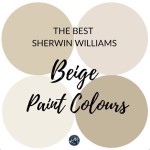Combining Colors for a Stylish Home Interior Design
When it comes to designing a stylish home interior, color plays a pivotal role. Different colors evoke distinct emotions, set the ambiance, and impact the overall perception of a space. Mastering the art of combining colors can transform your home into an aesthetically pleasing and inviting sanctuary.
Understanding the Color Wheel
The color wheel is a fundamental tool for understanding color relationships. It displays the primary (red, yellow, blue), secondary (orange, green, purple), and tertiary (combinations of primary and secondary) colors. The wheel depicts how colors relate to each other, such as complementary colors (opposite each other), analogous colors (adjacent to each other), and triadic colors (three colors evenly spaced). These relationships provide guidance in selecting harmonious color combinations.
Determining the Color Scheme
A color scheme establishes the overall color palette of a space. It typically consists of a dominant color, a secondary color, and accent colors. The dominant color should be used sparingly, while the secondary color provides balance and interest. Accent colors add pops of vibrancy and can be used to highlight specific elements within the room.
When selecting a color scheme, consider the intended atmosphere. For example, warm colors like red, orange, and yellow create a cozy and inviting ambiance, while cool colors like blue, green, and purple convey a calming and serene effect.
Using Color Theory
Color theory offers guidelines for combining colors effectively. Some common color combinations include:
* Monochromatic: Using different shades and tints of the same color * Analogous: Using colors adjacent to each other on the color wheel * Complementary: Using colors opposite each other on the color wheel * Triadic: Using three colors evenly spaced on the color wheel * Split-Complementary: Using one color and the two colors adjacent to its complementary color on the wheelBalancing Colors
Balancing colors is crucial to create a harmonious interior. Consider the following techniques:
* 60-30-10 Rule: Divide the color usage into 60% dominant color, 30% secondary color, and 10% accent colors. * Neutral Backdrop: Use neutral colors like white, gray, or beige as a backdrop to avoid overwhelming the space. * Pattern Mixing: Combine different patterns with similar color schemes to add visual interest without creating chaos.Complementing Textures and Finishes
In addition to color, texture and finishes play a significant role in creating a stylish home interior. Consider how different textures, such as smooth, rough, shiny, or matte, interact with colors. For example, combining a vibrant color with a textured wall can add depth and dimension to a room. Similarly, using a matte finish on a dark color can create a sophisticated and elegant look.
Inspiration and Experimentation
Drawing inspiration from nature, artwork, or fashion can provide valuable insights into color combinations. Don't be afraid to experiment with different color swatches and create sample boards before applying colors to your walls. It's advisable to consult with a color consultant or interior designer for professional guidance and to avoid costly mistakes.
Remember, the ultimate goal of color combination is to create a home interior that reflects your personal style and provides a comfortable and aesthetically pleasing environment for you and your loved ones.

20 Top Interior Color Schemes For Your House Design Foyr Neo
:max_bytes(150000):strip_icc()/color-scheme-GettyImages-1281326948-cc79d0c3d20d4969a7b1d1c859f1cee6.jpg?strip=all)
9 Interior Color Schemes Design Pros Swear By

Color Palette For Home 12 Combos Designers Love Havenly Interior Design Blog
:strip_icc()/grey-walls-turquoise-furniture-8005b71f-0f466e27e01c41edac57c4de38d4d8be.jpg?strip=all)
33 Living Room Color Schemes For A Beautiful Livable Space

Color Palette For Home 12 Combos Designers Love Havenly Interior Design Blog
:strip_icc()/3-Diana-Weinstein-5749311dd74a4373b726352a45057ae2.jpg?strip=all)
20 Stunning Interior Design Color Schemes

Stylish Fresh Color Design Ideas For Modern Living Rooms 15 Schemes
:strip_icc()/8-Katherine-Carter-7afdf99b993943d5a41961c6963fbcd8.jpg?strip=all)
20 Stunning Interior Design Color Schemes
:max_bytes(150000):strip_icc()/living-room-color-scheme-photos-452696-hero-48e8426dd0ab43468b07596d3a039fd1.jpg?strip=all)
51 Living Room Color Schemes From Bold To Understated

How To Mix Bold Colors According An Interior Designer
Related Posts








